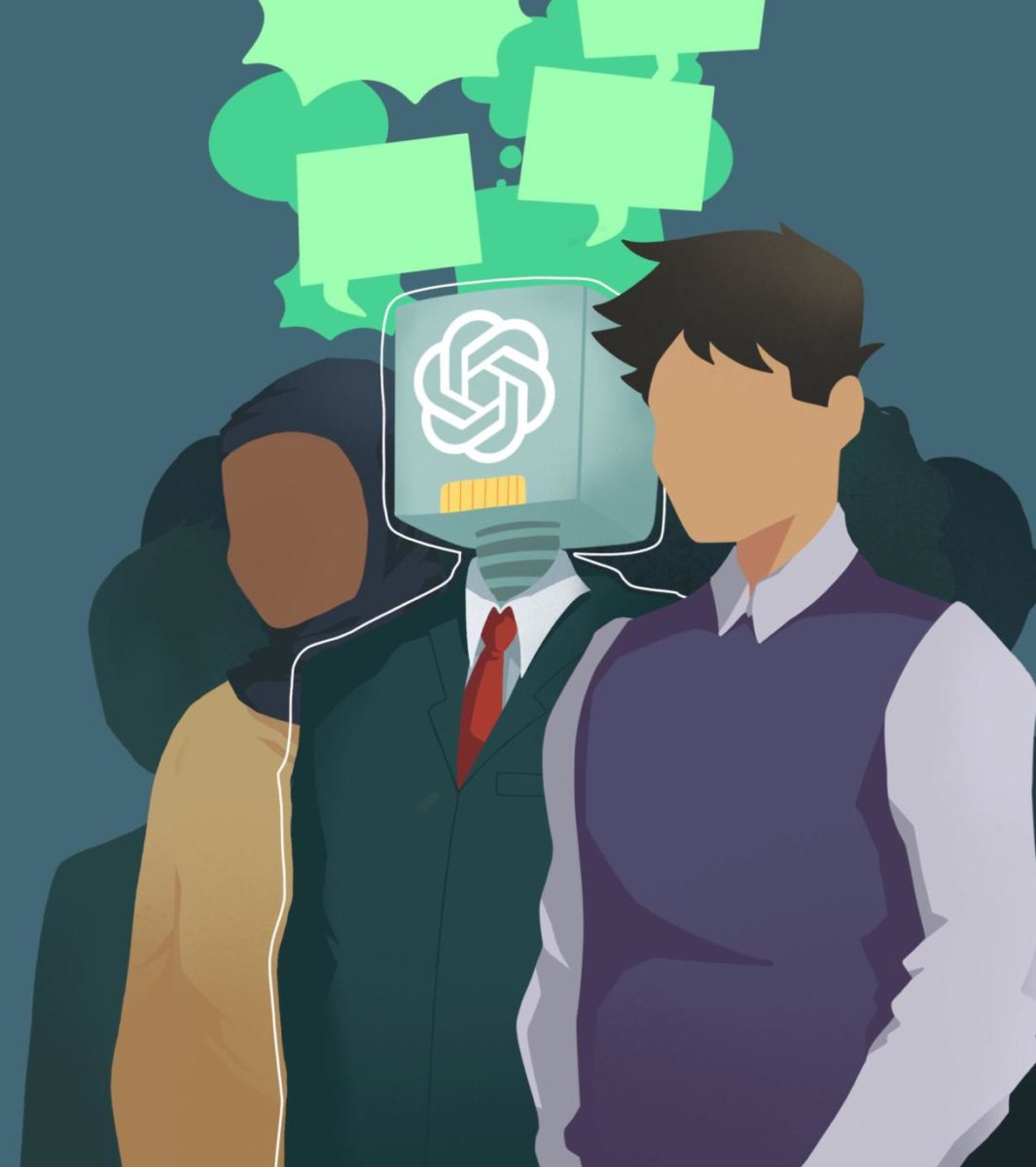From the February 2023 Issue of tjTODAY
“Hello! I am ChatGPT, a language model developed by OpenAI. I was trained on a diverse range of internet text, so I can respond to a wide range of questions and carry out conversations on many topics. I am here to help answer any questions you may have, so feel free to ask me anything!”
Chat GPT is a new AI technology that can spout out code, emails, and five page essays within seconds. When it was first released to the public at the end of November, the AI immediately raised concerns for academic integrity. It can easily become a tool for students to cheat on papers and CS labs.
We acknowledge that Chat GPT can take menial tasks, such as emails, off of our workloads. Automation takes care of time-consuming tasks that we wouldn’t otherwise enjoy or learn from, without harming anyone in the process.
Chat GPT can also be a valuable resource when explaining complex topics. Its quick and concise answers, compared to scouring the web and opening dozens of links, have potential to speed up the learning process.
In that sense, we wish there was a way to separate its features: providing information and producing work. Even then, the knowledge Chat GPT passes on isn’t always accurate, making it easy for users to unknowingly accept falsehoods as truth. On top of that, the AI doesn’t display the sources it uses to produce answers, so users don’t know where they’re getting their information from.
In response to Chat GPT, teachers are steering away from online assignments and moving towards presentations, oral tests, and in class essays on pen and paper. This far more hands on approach to demonstrating a student’s knowledge on a topic not only subverts the influence of Chat GPT, but also offers a more enriching payoff for the students in the long run.
As with all integrity violations, it’s important we empathize with the reasons why students feel a need to use Chat GPT to cheat. When we can’t seem to catch a breath in Jefferson’s never ending cycle of tests and deadlines, we’ll find any way to maximize sleep and social by doing the minimum amount of work required to receive the grade we’re happy with. That mindset can apply even for mentally stimulating assignments we find interesting.
Despite the short term benefit of creating work that can be turned in immediately, Chat GPT has been shown to produce writing of poor quality. Teachers, including those here at Jefferson, have caught and disciplined students who have used the AI due to the disjointed and off-topic nature of its verbiage. Even if their work was not caught, students wouldn’t receive good grades for this fabricated work due to the specificity of certain rubrics, and the AI’s inability to score full marks.
An occasional indulgence in the short term escapes offered by Chat GPT can snowball into a complete neglect of duties in certain classes. While it can be easy to develop tunnel vision toward many of the more rigorous STEM based classes, the fundamentals established from humanities courses are just as vital toward a more well rounded educational experience. One cannot simply delegate an entire portion of their curriculum to an AI without it reflecting on them as an individual.
Chat GPT is by no means pointless. When used effectively, it has the potential to drastically improve the efficiency of our everyday lives. As part of this responsible use however, students must have a deep enough understanding of its consequences as to not let it compromise our educational experience, especially given the quality of classes here at Jefferson.

